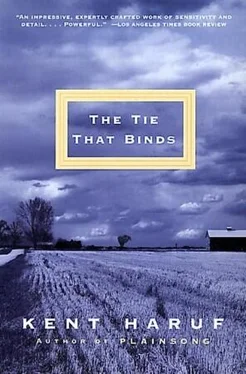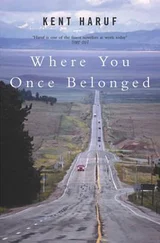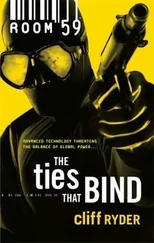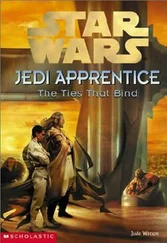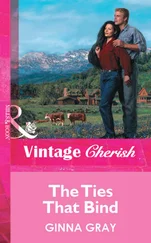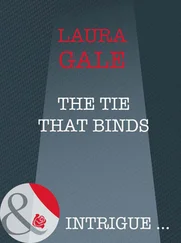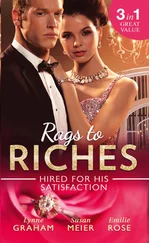THE GOOD TIMES began that same evening, the night Lyman was home again for supper and I was asked over to enjoy the surprise of him. I told you that after we’d eaten he wanted me to see his car and that I refused to sit in it. At the time I was still disgusted. Here he was back in the house again after all that lapsed time; he was eating his sister’s cherry pie and sporting those damn two-tone wing-tip shoes under her kitchen table — without one word of apology or real explanation for having taken so long. But I got over it; I decided that if it made Edith happy— and I could see that it did — then it wasn’t my business to be disgusted or angry or any more asinine than I’d already been. So I tried to partake of their enjoyment. I helped Lyman carry his miserable beat-up metal-and-cardboard suitcases into the house.
He spread them out on the living-room floor. It was like he was Saint Nick in July. Like he was some far-flung sailor returned home safe from the seven seas. Hell, I don’t know — it was like he imagined himself to be some modern form of Marco Polo come back from the farthest reaches of Outer Mongolia with spoils to prove it. He had treasure for us, for the farm-stuck cocklebur home folks. His suitcases were loaded with the stuff. He spread it around. He gave each of us something. Edith prized what he gave her about fifty-seven times more than it was worth, as if what he’d given her actually amounted to something. She danced back and forth to the mirror to wonder at the latest doodad he hung on her. But, in truth, it was all just junk, an old bachelor’s collection of tourist trinkets. You can buy better things on Sidewalk Sale Day in front of Duckwall’s in downtown Holt. But that didn’t matter to Edith: it was from her brother. He gave her a scarf from Boise, Idaho; a heavy bracelet from the Omaha stockyards; a silver necklace affair that dangled a thin pendant in the shape of a Georgia peach. And me, why me he gave a shoehorn from Pittsburgh, Pennsylvania. It had the name of some shoe-store scratched on the tin handle. I took it and didn’t laugh. But what the hell did I need with a shoehorn, even if it was from Pittsburgh? I wear boots.
Anyway, I said, “Thank you, Lyman. I appreciate this.”
He went on dispensing and displaying his junk, his proof of travel. By the time he had finished Edith looked like a circus gypsy. She was weighted with cheap necklaces, purple scarves, earrings and dangling bracelets — all with city names on them. She gave him in return a hug and a kiss; they were having a fine time of it. Then she took him by the hand and led him around the walls of the living room to examine and explain each postcard he had sent her, and each one reminded him of something, recalled for him in droning detail the days and months he’d spent in each place. Edith was as attentive as a lover. She kept saying things like, “And this one you sent from Cleveland, didn’t you? What happend there?” And he would tell her of course; Lyman didn’t require much prompting. He was full of stories. I watched them from the rocking chair, feeling as out of place as an old maid aunt chaperoning at a kids’ party — they were having such a time.
When they had made the complete circuit of the postcards, Edith sat him down again on the couch behind his opened, emptied suitcases. “Now there’s something more I want to show you,” she said.
“Can’t we have some more pie first?”
“No, you can’t. Not yet. I’ve got a surprise for you.”
She went over to the bureau and brought back that shoe box of hers, the one with those damned unspent, unused, never-even-counted twenty-dollar bills wrapped in bows.
“What’s this?” he said.
“Yours. Ours now.”
“How come. .”
He looked up at her from the couch, and she was staring down at him out of all those years. He didn’t know what to say. He rifled through the fussed-over bills, stacked them in piles, counted them out on the couch.
“That makes twenty-seven hundred dollars,” he said. “How come you never used it?”
“Because.”
“You never spent a one?”
“No.”
“Look here, Sandy,” he said. “She never spent my money.”
“I know it,” I said. “I’ve seen that box before.”
I stood up to leave then. Edith tried to keep me there for more dessert, but I was full. I was too full, for the moment, of everything.
They walked with me to the back porch door. From my pickup I looked back at them; they stood waving at me from the lighted doorway — a tall gaunt bald-headed man in a winter suit beside a trim little lady with shining brown eyes — two kids in their sixties with arms linked.
I went home. In the kitchen I poured myself a long shot of Jack Daniel’s without water or ice, threw it down, poured another and seated myself in the easy chair in front of the television to watch the ten-o’clock news and weather. Lyman was home and Edith was pleased. Bleary eyed, I watched Rusty Thompson, the Denver weather man, predict sun for tomorrow.
SO EDITH and Lyman Goodnough got to be kids for a while. It was like they were just-bloomed teenagers, full of overdue sap and pent-up vinegar. The time was ripe for it, too. The country, remember, and even Holt County, was up for grabs during that period. I’m talking here about the 1960s, when kids everywhere were growing hair and wearing costumes, showing their breasts and generally refusing to do whatever it was their folks knew damn well they should do, had by God better do if they knew what was good for them, until some of them began to get permanent greetings and immediate marching orders from a Texas president, and then it turned out that it wasn’t so good for them after all, because so many never came back alive. It was a stupid war. We lost two boys from Holt County to it. They were our insane ante in that murderous poker game. But I’m not going to talk about that: too much has already been said about it and none of it helps. No, I’m talking about my neighbors, the Goodnoughs, who were also kids in the sixties.
I suppose you could say that what happened to them was like they were having a second childhood — only that wouldn’t be accurate. You can’t have seconds of something until after you’ve had firsts of the thing. And of course they never had firsts. Ada Twamley, their mother, had been too weak chinned, too consumed with dreaming backwards, to see to it that Edith and Lyman were allowed to be kids while she herself still lived; then she died and left them alone in total charge and control of the old man. And that old son of a bitch didn’t believe in any such luxuries; kids were laborers to him, custom-made, self-sired farmhands to be ordered around however, whenever, he deemed fit. Besides, there were always those stumps of his and that routine meanness, as if he figured it was not only his God-given right but his particular duty too to be forever mean and harsh. But I already told you some of that, told you too that he released them finally by dying in that upstairs bedroom with his mouth locked open. Of course it took Lyman nine years to realize it. But, anyway, now he had; he was home again. For the first time in their lives, Edith and her brother were absolutely alone on that farm in that house down the road from me.
They didn’t quite know what to make of it at first. What in the world were they going to do with all that vacation time, that freedom from duty and direction? Well, they didn’t do anything rash, exactly. On her part Edith learned to sip gimlets from a barroom goblet, to go a little giggly and pink cheeked in a nice sort of girlish way. And as for Lyman, once he was home and realized there wasn’t anyone there to tell him what to do, Lyman refused to change clothes. What I mean is, he wouldn’t wear work shoes or overalls again. He went on dressing up every day like he believed he was a banker, a retired mortician. Every day he put on his wing tips, his dress pants, shirt, and tie. He was definitely finished with farming; he wasn’t going to plow sand anymore. As far as he was concerned, I could go on farming their place just as I had done for the past ten years. They got their share of the profits regularly; they had that twenty-seven hundred dollars Edith had saved; it was fine with Lyman. So now they had both money and freedom, and a new green Pontiac waiting outside at the picket gate.
Читать дальше
